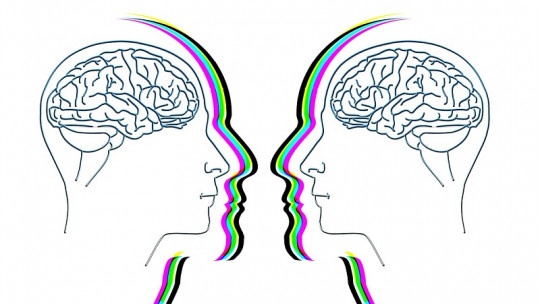
Our thoughts, those ideas, beliefs and ideological principles that we have about ourselves and what surrounds us, are the foundations that help us build and conceptualize our reality, and assume what may happen. This type of thinking is called predictive thinking or expectation, and we use it at all times. As psychologist Valeria Sabater explains: “the power of the predictive mind is a practice that we apply without realizing it and that defines a good part of our daily lives.”
This ability to anticipate is key to adaptation and problem solving Now, what happens when false beliefs are created and we refuse to explore different possibilities? These erroneous beliefs will generate an “accurate” anticipation that will influence our behavior in such a way that we will cause a “falsehood” to become true. This is the genesis of the self-fulfilling prophecy.
What is self-fulfilling prophecy?
The self-fulfilling prophecy explains how our predictive but misguided thoughts (expectations) can condition our actions (predisposition) to the point of that we turn something fictitious or false into a reality or truth (compliance) There are two types of self-fulfilling prophecies: self-imposed ones and those imposed by others.

In the field of psychology, this cognitive bias is also known as the Pygmalion effect, due to a Greek myth in which a sculptor of the same name felt so passionate about one of his creations that he treated the statue as if it were a woman. real, which caused the statue—Galatea—to come to life.
How did this concept begin to form?
This concept was proposed by sociologist Robert K. Merton (1948) in response to “Thomas Theorem” by sociologist William I. Thomas. This theorem states that if people We define a situation as real, said situation will have real consequences
Years later, psychologist Robert Rosenthal and researcher Lenore Jacobson ran an experiment to assess the role of self-fulfilling prophecy in academic performance. The research determined that teacher expectations had significant consequences on students’ academic performance: the more positive the teacher’s expectation was, the better the student’s performance, and vice versa. This special phenomenon of self-fulfilling prophecy is known as the Rosenthal effect
How does it materialize?
Three events must occur for a self-fulfilling prophecy to come true:
It should be noted that this process is cyclical, since, as soon as the expectation becomes reality, we have more “evidence” that confirms the initial false belief, and so on.
Why does the self-fulfilling prophecy occur?
First of all, it is important to emphasize that anticipation (objective expectation) is an inherent and primordial cognitive capacity of executive functions, which control and self-regulate behavior to achieve a specific objective, and whose neurological bases lie primarily in the prefrontal cortex.
Absolutely all of us have expectations of ourselves and everything around us If beliefs and expectations are adjusted to reality, they can serve as a source of motivation. However, preconceived opinions can easily become prejudices if they are not properly founded. The problem lies precisely in not being able to let go of our prejudices, quite the opposite. By clinging to them, we establish habits of thought that not only distort cognitive flexibility (behavioral adaptation), but reap mental rigidity (cognitive resistance). This is the case of the self-fulfilling prophecy, in which we insist on a false belief and discard any other explanation.
According to psychologist Ana María de la Calle, have low self-esteem may be the origin of this phenomenon. He also emphasizes that this process is usually common in people who tend to be negative or self-demanding, becoming something cyclical, since the result further reinforces the original belief, increasing insecurity and low self-esteem, and so on (self-imposed prophecy). Likewise, as established by Maslow’s pyramid of needs, every human being has a need to belong and desires to be accepted by a community or group. Sometimes, this need can also lead us to assume roles or perform actions to fit the expectations that are had of us (prophecy imposed by others).
Along these lines, we could also define self-sabotage as the manifestation of a self-fulfilling prophecy. According to psychologist Isabel Rovira Salvador, self-sabotaging behaviors aim to hinder the achievement of goals, causing failure or disappointment. Rovira establishes that people who participate in this type of behavior suffer from low self-esteem, have limiting beliefs, and fear not living up to the expectations of others. Sounds familiar? In this sense, people who self-sabotage have a negative cognitive bias about themselves, they modify their behavior, and either through procrastination or under the shield of perfectionism, they do not achieve their goal, and by failing they make the self-fulfilling prophecy come true.
How can the self-fulfilling prophecy affect us?
According to research, the self-fulfilling prophecy can materialize in any area of our daily lives, and can generate intense anxiety and cause a state of constant alert, which can be draining and demotivating for anyone.
Next, we will detail some practical and everyday examples of how this phenomenon can materialize:
How can we combat the self-fulfilling prophecy?
We should not be prisoners of our thoughts, these are not reality, they are a product of our mind. It is in our power to take charge and question our beliefs when they are not based on objectivity. If we deactivate autopilot, are aware of our thoughts and our language, and surround ourselves with people who challenge us intellectually, we will avoid falling into this vicious cycle and will be able to expand our minds and promote personal growth.








